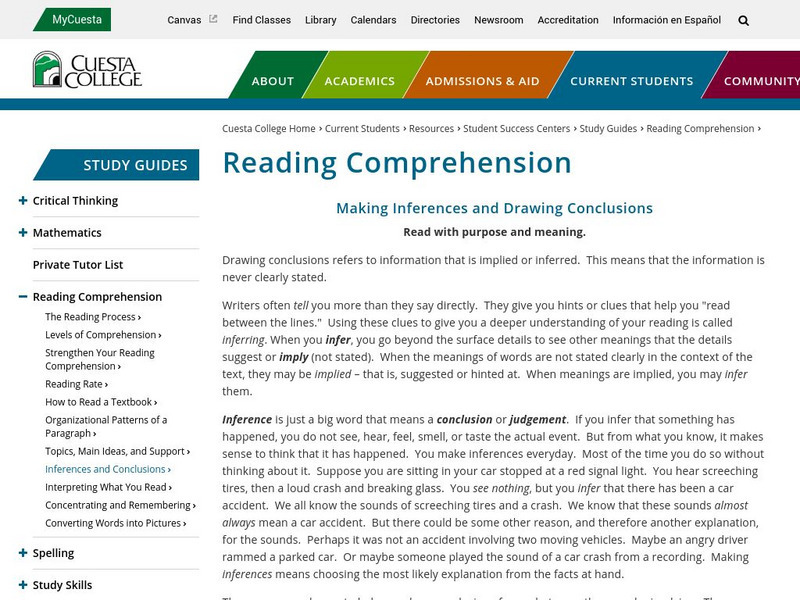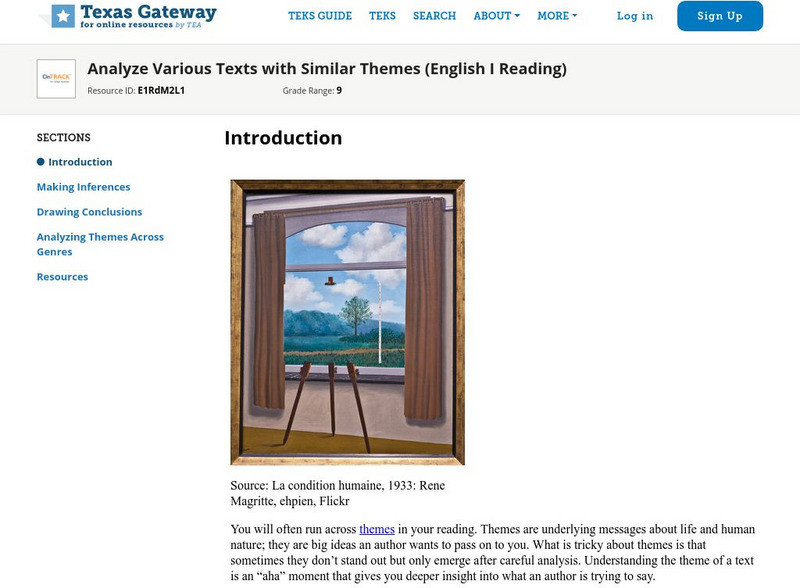Curated OER
Alcohol and Pregnancy Don't Mix!
Seventh graders learn about John Kellerman, a youngster who was born with Fetal Alcohol Syndrome. They learn how alcohol and pregnancy doesn't mix.
Curated OER
Polar Bears and Ice
Young scholars explore the Arctic food chain. They examine the needs of the polar bear and the threat that global warming poses to them. Students write a letter to a local political representative explaining what they have studied and...
Curated OER
What Does Average Look Like?
Fifth graders explore the concepts of range, median, mode, and mean through the use of graphs drawn from models. They use manipulatives to represent data they have collected within their groups, and compare the differences between mode,...
Curated OER
Beatrix Potter's Naughty Animal Tales
Students gain insight into the unusual, solitary world of Beatrix Potter's Victorian childhood and can compare/contrast it with their own world to explain why Potter wrote such simple stories and why she wrote about animals rather than...
Curated OER
Aeronautics Propulsion
Pupils use the World Wide Web to access additional information needed to complete the activities on the forces on an airplane, the function of the stabilizer, and the calculation of Mach speed, temperature, pressure, and thrust.
Curated OER
Using 3-D Models for Code Validation with FoilSim
High schoolers use FoilSim to complete the activity to create tables of data sets comparing the lift values for a 3-D model of a symmetrical wing section to the values predicted by the FoilSim software.
Curated OER
Underground Railroad
Fourth graders use internet cites to explore the Underground Railroad. They also learn the importance of the Emancipation Proclamation. Focus questions are included.
Curated OER
Sampling Snoops
Students practice formulating a hypothesis and designing an experiment to test the hypothesis. They identify several sampling techniques they can use to test their hypotheses.
Curated OER
The Time I Got Lost
Third graders go through the writing process but substitute paper and pencil with the computer to create a story about "The Time I Got Lost".
Curated OER
A Tale of Two Cranes How Do Wild and Costume-raised Whoopers Compare?
Students explore what young cranes need to do to survive.
Curated OER
"My Side of the Mountain"
Students demonstrate comprehension skills be retelling 6-8 significant events. They identify new vocabulary words and determine the meaning by using context clues.
They contribute to group discussion by sharing at least 1 idea/reflection...
Curated OER
Canada 2050: Future Population Trends
Students analyze population data and a population pyramid projection for Canada. They make predictions of future society and economic trends.
Curated OER
Using My Nasa Data To Determine Volcanic Activity
Students use NASA satellite data of optical depth as a tool to determine volcanic activity on Reunion Island during 2000-2001. They access the data and utilize Excel to create a graph that has optical depth as a function of time for the...
Curated OER
How Does it Affect Plants?
Students examine the effects of acid rain on plants. They observe the growth of seeds and the health of different plants for a month. They share their findings with the community.
Curated OER
Language Arts- Word Origins
Sixth graders locate, access, and select appropriate information from a variety of resources, including electronic sources. They analyze the audience and purpose of the task to make decisions about content and format.
Other
Peoples Education: Make Inferences in Science [Pdf]
This online textbook selection focuses on how scientists make inferences from evidence. Students are given a reading passage about underwater exploration and are asked to make inferences based on the text. The passage is followed by...
CommonLit
Common Lit: Women in Ancient Rome
CommonLit.org is a wonderful resource to use in a Language Arts classroom. Each story or article is accompanied by guided reading questions, assessment questions, and discussion questions. In addition, students can click on words to see...
Read Works
Read Works: Drawing Conclusions 3rd Grade Unit
[Free Registration/Login Required] A two-lesson unit on drawing conclusions through which students learn how to recognize the difference between implicit information and drawing conclusions. Students also learn to draw conclusions in...
Read Works
Read Works: Fourth Grade: One Lesson Unit: Drawing Conclusions
[Free Registration/Login Required] Students are guided through a lesson plan to understand the difference between explicit information and conclusions drawn from a text. With free login, users have access to passages used in this lesson...
Polk Brothers Foundation Center for Urban Education at DePaul University
De Paul University: Center for Urban Education: I Can Draw Conclusions: History Analysis [Pdf]
Students can use these guiding questions as they complete two graphic organizers about a historical event. Students will then ask guiding questions about the historical event to draw conclusions about the historical event.
Other
Cuesta College: Reading Comprehension Guide: Inferences and Conclusions
Explanations and examples of inferences and conclusions in reading and in understanding context clues to define unknown vocabulary.
Texas Education Agency
Texas Gateway: Analyze Various Texts With Similar Themes (English I Reading)
You will learn how to make inferences and draw conclusions about similar themes in various texts by finding supporting evidence within the texts.
Texas Education Agency
Texas Gateway: Annotate and Analyze a Paired Passage: Practice 1
In this lesson, students will read and annotate a pair of texts to make inferences, draw conclusions, and synthesize ideas and details using textual evidence.
Texas Education Agency
Texas Gateway: Annotate and Analyze a Paired Passage: Practice 2
[Accessible by TX Educators. Free Registration/Login Required] In this lesson, students will read and annotate a pair of texts to make inferences, draw conclusions, and synthesize ideas and details using textual evidence.















![Peoples Education: Make Inferences in Science [Pdf] eBook Peoples Education: Make Inferences in Science [Pdf] eBook](https://static.lp.lexp.cloud/images/attachment_defaults/resource/large/FPO-knovation.png)


![De Paul University: Center for Urban Education: I Can Draw Conclusions: History Analysis [Pdf] Activity De Paul University: Center for Urban Education: I Can Draw Conclusions: History Analysis [Pdf] Activity](https://content.lessonplanet.com/knovation/original/119989-9e7c5fe7337c4692a71d6981f22134f7.jpg?1661787068)



